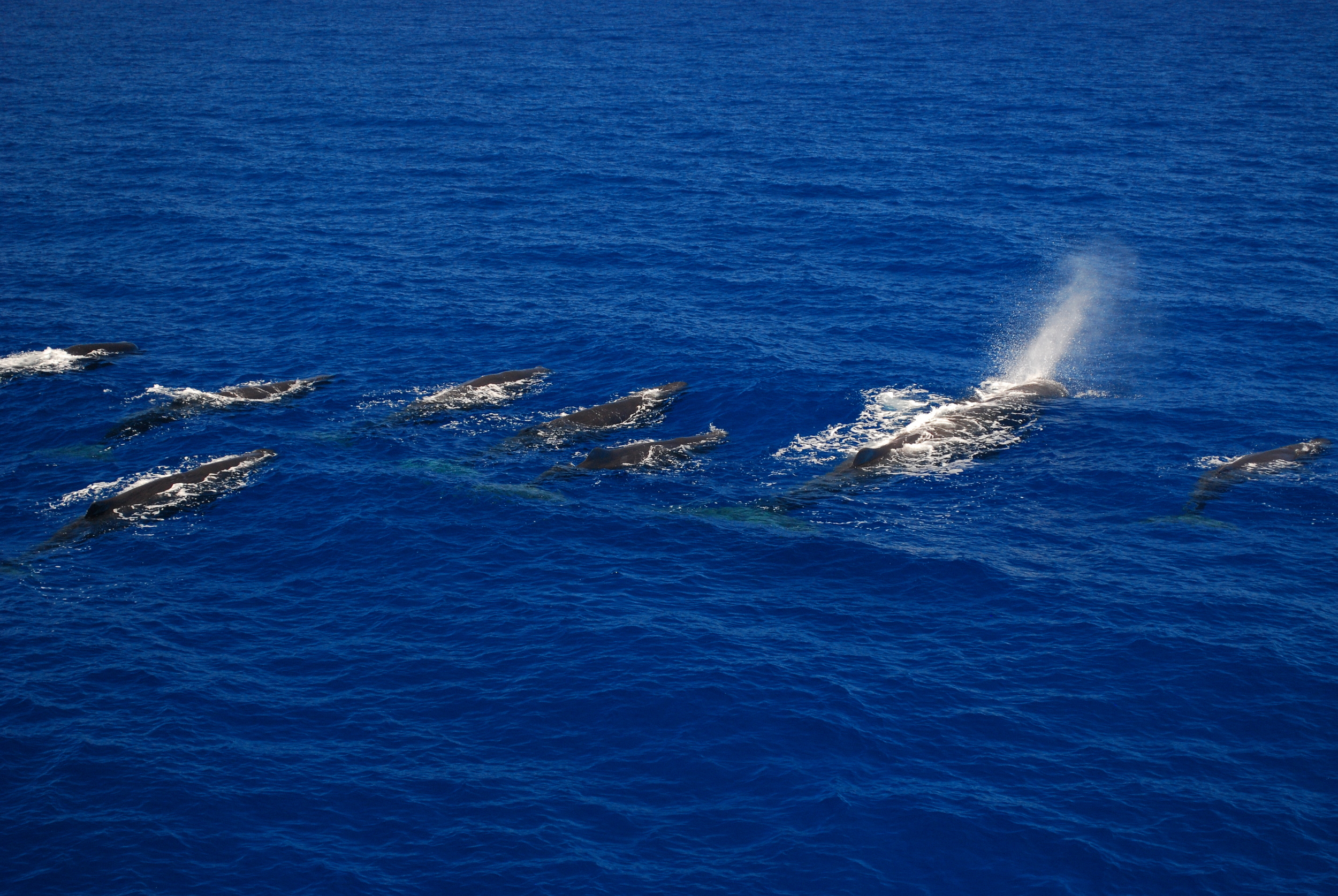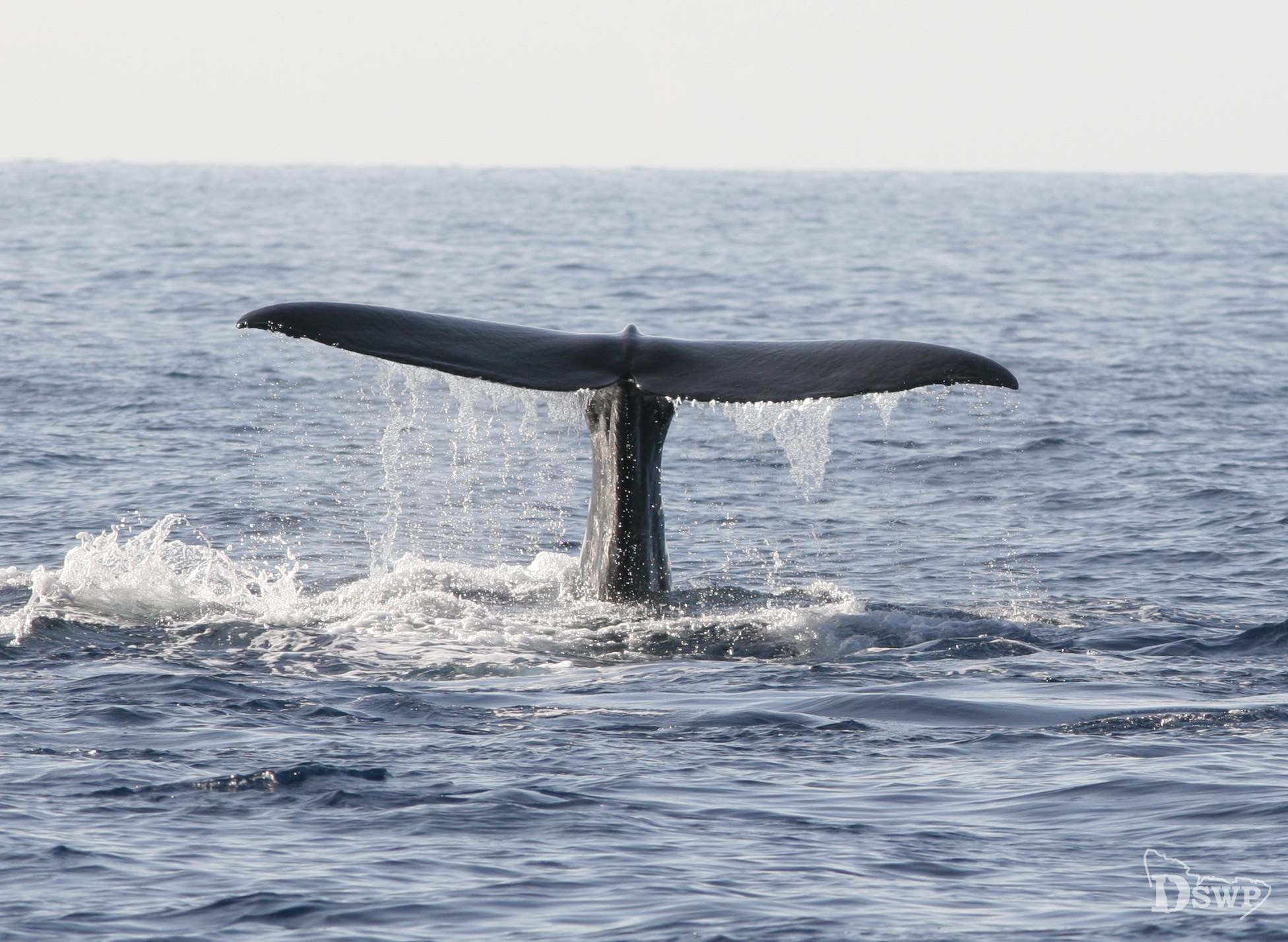




Comm Home
Communicate
Comm Home
Communicate
To share the stories of the whale families we work with in order to develop public awareness of the importance of the oceans to both marine mammals and humans.
The deep ocean home of the sperm whales is still mostly a mystery. Learning from the whale families is part of unlocking those secrets; and by sharing their stories, we hope to motivate others to ensure that today’s calves can raise their calves in a healthy ocean. These whale families are ambassadors from a deep ocean nation, spanning evolutionary timelines longer than modern humans have walked upright, educating us about their way of life in a part of our shared planet that is difficult for us to even explore. These whales’ stories are important and people need to hear them. Not just scientists, not just marine protected area managers, not just the passionate ocean advocates, but everyone who has a mother, who has an aunt who babysits them, or who has felt the anguish of the divide between ‘Us’ and ‘Them’, and who will be amazed by the sophistication of whale lives and reminded of the richness in their own. Our research has been featured in the New York Times, two BBC miniseries, Science Magazine, MacLean's Magazine, Motherboard, WIRED, and CBC's The Nature of Things, among other great publications and series.
Over the last 10 years, we have worked closely with local governments; as well as, local and international NGOs to make advances in applied conservation. This program also provides population level data to the International Whaling Commission and has contributed to multi-institutional collaborative studies on sperm whales on oceanic and global scales. More locally, we provide monitoring and assessment of whale and dolphin populations to national governments, as well as management and conservation recommendations region wide.
Our program has provided training to local whale watch operators and their staff, educational aids, and many crew have worked aboard our trips, but with the continuation of our presence in Dominica we hope to be to develop a whales-in-schools program and to work more closely with local fisheries cooperatives.
Scroll down to learn more about sperm whales
Select from below to find out more about how we share the stories of the sperm whales:

Sperm Whales
Sperm Whales
Sperm Whales
Sperm Whales
A trio of whales from Unit R courtesy of Amanda Cotton
The sperm whale (Physeter macrocephalus) is truly an animal of extremes. They are the largest of the toothed whales, among the longest and deepest divers, have the planet's largest brain and longest intestine, and can be found in every ocean and most coastal seas and gulfs on the planet, so as a result they are an ecologically significant species in the ocean. Worldwide, they eat as much squid in a year as all of the biomass removed from the oceans by all of the modern human fisheries combined! The also have a complex social structure and a diverse communication system which are the focus of most of our research.
Learn more about details about sperm whales on their Wikipedia Page, or scroll down to lean about the sperm whale families in Dominica

Whale Families
Whale Families
Whale Families
Whale Families
Three members of Unit R courtesy of Amanda Cotton
Sperm whales are animals that form lifelong relationships, that babysit for each other, that have family traditions passed on by grandmothers, that learn a communal dialect, and have different ways of life that resemble our various cultures, some of which coexist in in multicultural societies. They live rich, complex and interesting lives that many of us would be surprise to learn about.
The sperm whales off Dominica are predominantly groups of females and their dependent calves living together in 'units'. In the Caribbean, these units are small, about 7 animals, and appear to be matrilineal, meaning its a female line of grandmothers, mothers, and their calves; so we often refer to them as families. Young males leave their families in their early teens to roam the open ocean, mostly alone, and may never see their families again. Units of females and their young regularly travel across ranges spanning several islands in the Antilles, but they appear to remain in the Caribbean as these families have never be identified in the neighbouring waters in the Gulf of Mexico or the Sargasso Sea, where there is also active research on sperm whales.
We have identified over 30 different whale families which use the waters off Dominica, but there are about 16 that we see very regularly. We know they have been using these waters since at least 1984 based on our pictures, but likely much longer based on their life history. Sperm whales can live to be older then 70 years. Living that long means that you meet a lot of other whales over your lifetime and it turns out that families have preferences with each other. These social preferences endure across decades suggesting that individuals can remember each other across long separations.
We think this social recognition is mediated by distinct dialects of Morse code-like social calls termed ‘codas’. Each family has a slightly different coda repertoire, but also share coda types with the other units in the Caribbean. Shared repertoires delineate socially segregated ‘vocal clans’ – collections of units that share a similar coda dialect. Units which share the same dialect associate and spend time together and units that have different repertoires never gather together. In the Caribbean, the '1+1+3' coda type, which sounds like 'Click-pause-Click-pause-Click-Click-Click', is unique to the region, it has been produced in the same way for at least the last thirty years, and is made the same way by all the whales which use it. Its like a marker of Caribbean nationality.
Learn more about the sperm whales families in our Flukebook
Find out what we have learned from thousands of hours in their company read our Publications

Press
Press
Press
Press
Press Material
The project has a number of images and sperm whale audio available which can accompany stories on the project, Dominica Tourism, Whale watching, or sperm whales in general. Please contact us with specific requests.
